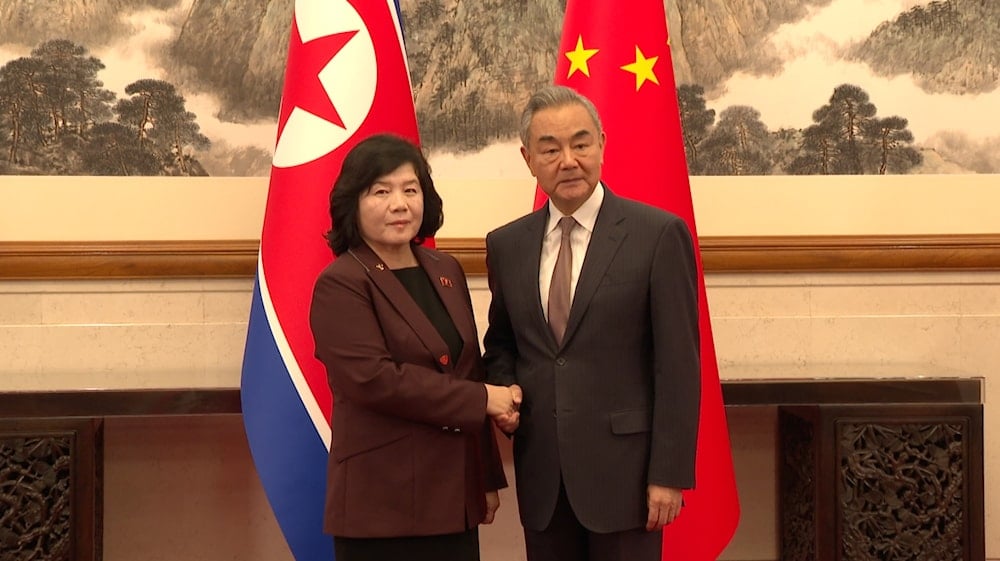China, DPRK pledge deeper ties to counter US-led hegemony
The DPRK's foreign minister, in a visit to China, affirmed that the "bonds of friendship" between Pyongyang and Beijing "cannot be altered."
-

Chinese Foreign Minister Wang Yi (Right) shakes hands with visiting DPRK counterpart Choe Son Hui (Left) in Beijing on Sunday, September 28, 2025. (CGTN)
Chinese Foreign Minister Wang Yi and his DPRK counterpart Choe Son Hui met in Beijing on September 29, reaffirming their commitment to deepen bilateral ties and jointly resist what they described as US-led "hegemonism" and "unilateralism."
During their talks, Choe expressed Pyongyang's support for Chinese President Xi Jinping's vision of building "a community with a shared future for mankind," while Wang emphasized Beijing's "iron-clad" determination to maintain close cooperation with the DPRK in defense of mutual interests.
Choe cited DPRK leader Kim Jong Un, stressing that the "bonds of friendship" between Pyongyang and Beijing "cannot be altered" and should evolve "in line with the demands of the times."
The ministerial meeting came after Kim Jong Un traveled to Beijing for a landmark summit with Xi Jinping on September 4, their first face-to-face encounter in over six years. Just a day earlier, Kim stood alongside Xi and Russian President Vladimir Putin at China's massive Victory Day military parade, commemorating the 80th anniversary of Japan's surrender in World War II.
The unprecedented joint appearance of the three leaders was widely seen as a symbolic show of unity against Western influence in global affairs.
Economic ties show resilience
Beyond politics, economic cooperation remains central to the China-DPRK relationship. China continues to serve as the DPRK's primary economic partner, accounting for nearly 98% of Pyongyang’s foreign trade in 2024.
In the first half of 2025, bilateral trade surged by about 30%, reaching $1.26 billion. Chinese exports to the DPRK grew 33% to $1.05 billion, while imports rose 20% to $210 million. Although August marked a slight year-on-year decline in exports, overall figures underscored the resilience of cross-border economic activity.
Shared opposition to US-led hegemony
Both sides reiterated that their cooperation is not only bilateral but also part of a wider strategic alignment. Choe underscored the DPRK's willingness to engage in multilateral frameworks alongside China to "jointly resist unilateralism and power politics."
Wang Yi echoed the sentiment, pledging to coordinate closely with Pyongyang on regional and international issues and to defend "fairness and justice" worldwide.
One of the most significant shifts emerging from recent talks is the absence of any reference to "denuclearization of the Korean Peninsula" in joint statements, a move analysts interpret as Beijing's tacit acceptance of the DPRK's nuclear status. This adjustment reflects a broader strategic realignment, as both countries deepen cooperation while balancing their respective relations with Russia.

 3 Min Read
3 Min Read








